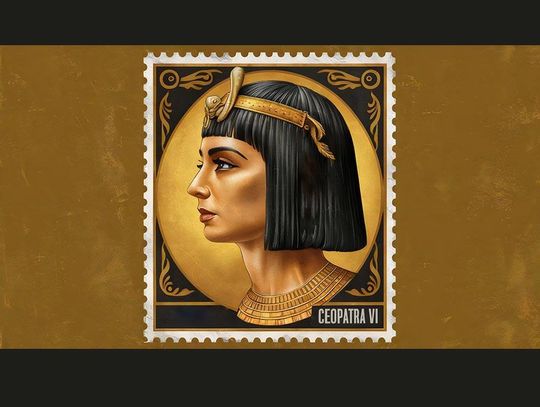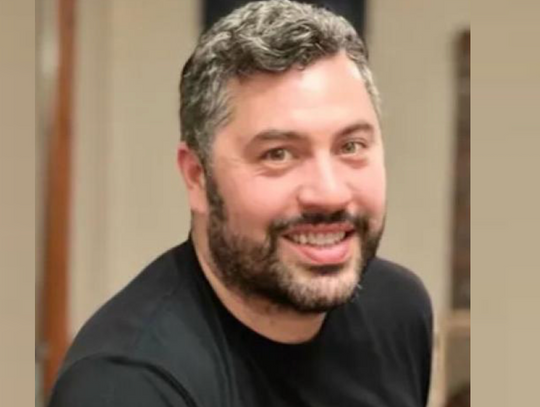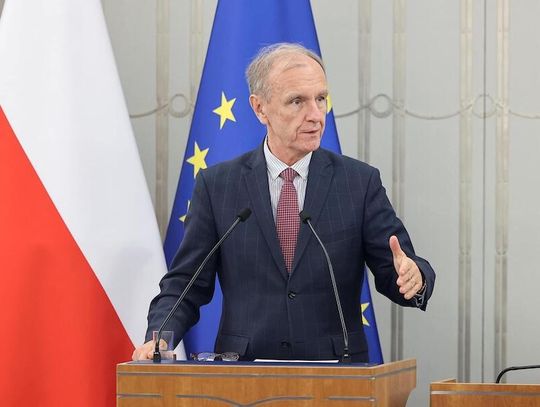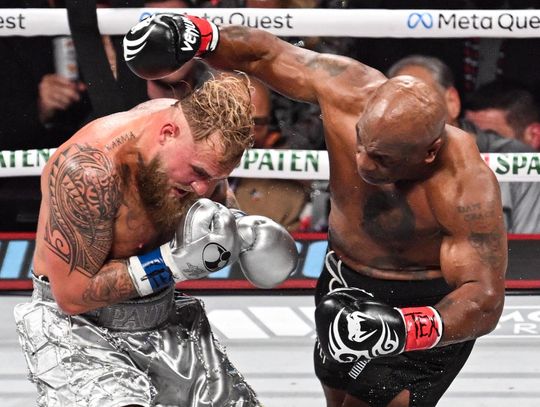Czy czegokolwiek uczymy się z historii? Jakby powiedziała moja mama – oto jest pytanie. Jest to pytanie ważne, zwłaszcza teraz, kiedy Polska i reszta świata upamiętnia rocznicę inwazji na Polskę i wybuch drugiej wojny światowej. Wojny, która pozostawiła po sobie hasło ”Nigdy nie zapomnij”. Czy wojna była lekcją historii? Ostatnio obejrzałem serię zdjęć uczniów, które robili sobie podczas zwiedzania Muzeum Auschwitz. Szczególnie jedno zdjęcie wryło mi się w umysł, ponieważ przedstawiało młodą dziewczynę tańczącą, podskakującą i uśmiechającą się na tle obozowej bramy, na której widnieje inne znane hasło tej wojny: ”Praca czyni wolnym”, czyli ”Arbeit Macht Frei”.
Może jedyne, czego uczymy się z historii, to że pewnego dnia pewnie będzie nas stać na tego SUV’a, Lexusa czy Infiniti, o którym marzymy. Zapomnijcie o zmianie świata. Zapomnijcie o sprawiedliwości dla tego czy tamtego popaprańca. Zapomnijcie, że możliwe jest przekonanie bandy oprychów z pustyni, by uszanowała nienaruszalność życia innej grupy oprychów.
To, co się liczy i czego chcemy, to lodówka firmy LG i 105-calowy telewizor Samsunga z zakrzywionym ekranem 4K UHD, ponieważ szacunek, braterstwo, miłość, Era Wodnika i harmonia – to wszystko kłamstwa. Sądzicie, że tak nie jest?
Saul Bellow, laureat Nagrody Nobla i sąsiad z mojej dzielnicy w Chicago, powiedział kiedyś: ”Myślisz, że historia to opowieść o miłujących sercach? Głupcze! Popatrz na te miliony zabitych. Szkoda ci ich? Co czujesz? Nic nie możesz z tym zrobić! Zginęło ich zbyt wielu. Spaliliśmy ich na proch, a groby zasypaliśmy buldożerami. Historia to opowieść o okrucieństwie, a nie – jak myślą mięczaki – o miłości. Sprawdziliśmy ludzkie możliwości szukając w nich siły i piękna, ale ich nie znaleźliśmy. Jest tylko praktycyzm. Jeśli Bóg istnieje, to musi być mordercą. A jedynym prawdziwym bogiem jest Śmierć.”
Znam wielu poważanych profesorów historii i socjologii, którzy zastanawiają się nad zagadnieniami typu „do czego możemy użyć historii i czego się z niej nauczyć?”. To interesujące pytanie, ale w tym samym czasie siedem miliardów ludzi zastanawia się, gdzie kupią nowego Chevroleta za najniższą cenę. Dlaczego chcą go kupić? Bo zdają sobie sprawę, że jeśli tego nie zrobią teraz, to zaraz gdzieś z gór zejdzie kolejna horda, rozpocznie się katastrofa klimatyczna albo inny naturalny bądź spowodowany przez człowieka kataklizm. I wtedy już go nie kupią i nie dotkną czegoś, co na kilka minut przyniesie im iluzję, że wszystko idzie w dobrym kierunku.
Zatem – uśmiechnij się.
The Lessons of History
Do we learn from history?
As my mother would say, "That's the question." And it’s an important question right now as Poland and the world commemorate the invasion of Poland the start of World War II, the war that created the phrase “Never Forget.”
Is that the lesson of history? Recently, I was looking at selfies and photos of students visiting Auschwitz Memorial. The photo that really sticks in my mind is the one of the girl dancing and leaping and smiling at the gates of Auschwitz beneath that other phrase created during World War II: Arbeit Macht Frie – Work Will Free You.
Maybe what history teaches us is that the only good we can ever have is that SUV, that Lexus or Infiniti, that we dream of buying someday.
Forget trying to change the global community. Forget trying to get justice for this schmuck or that schmuck. Forget trying to convince some desert hooligans to appreciate the sanctity of the lives of other desert hooligans.
All there is -- all that we can hope for -- is the LG refrigerator and the Samsung 105” Smart TV with the curved 4K UHD screen because grace, justice, brotherhood, love, the Age of Aquarius, harmony and understanding are all lies.
You don’t think so?
Here's something Nobel Prize Laureate Saul Bellow, a guy from my old neighborhood in Chicago, said:
"You think history is the history of loving hearts? You fool! Look at these millions of dead. Can you pity them? Feel for them? You can do nothing! There were too many. We burned them to ashes, we buried them with bulldozers. History is the history of cruelty, not love, as soft men think.
"We have experimented with every human capacity to see which is strong and admirable and have shown that none is. There is only practicality. If the old God exists, he must be a murderer. But the one true god is Death."
I’ve known big-time history professors and sociologists who wonder about stuff like: what can we do with history and what can history teach us?
Interesting question, but there are 7 billion other people saying, "Where can I get a good price on a Chevy?"
And why do they want to get a Chevy? Because they know if they don't get it now before the next horde comes down from the mountains or the next Climate Catastrophe starts or the next natural or manmade madness starts, they'll never get it, never touch something that once for a couple of minutes gave them the illusion that things were looking up.
So smile.
John Guzlowski
amerykański pisarz i poeta polskiego pochodzenia. Publikował w wielu pismach literackich, zarówno w USA, jak i za granicą, m.in. w „Writer’s Almanac”, „Akcent”, „Ontario Review” i „North American Review”. Jego wiersze i eseje opisujące przeżycia jego rodziców – robotników przymusowych w nazistowskich Niemczech oraz uchodźców wojennych, którzy emigrowali do Chicago – ukazały się we wspomnieniowym tomie pt. „Echoes of Tattered Tongues”. W 2017 roku książka ta zdobyła nagrodę poetycką im. Benjamina Franklina oraz nagrodę literacką Erica Hoffera, za najbardziej prowokującą do myślenia książkę roku. Jest również autorem dwóch powieści kryminalnych o detektywie Hanku Purcellu oraz powieści wojennej pt. „Road of Bones”. John Guzlowski jest emerytowanym profesorem Eastern Illinois University.
—
John Guzlowski's writing has been featured in Garrison Keillor’s Writer’s Almanac, Akcent, Ontario Review, North American Review, and other journals here and abroad. His poems and personal essays about his Polish parents’ experiences as slave laborers in Nazi Germany and refugees in Chicago appear in his memoir Echoes of Tattered Tongues. Echoes received the 2017 Benjamin Franklin Poetry Award and the Eric Hoffer Foundation's Montaigne Award for most thought-provoking book of the year. He is also the author of two Hank Purcell mysteries and the war novel Road of Bones. Guzlowski is a Professor Emeritus at Eastern Illinois University.
fot.Facebook










